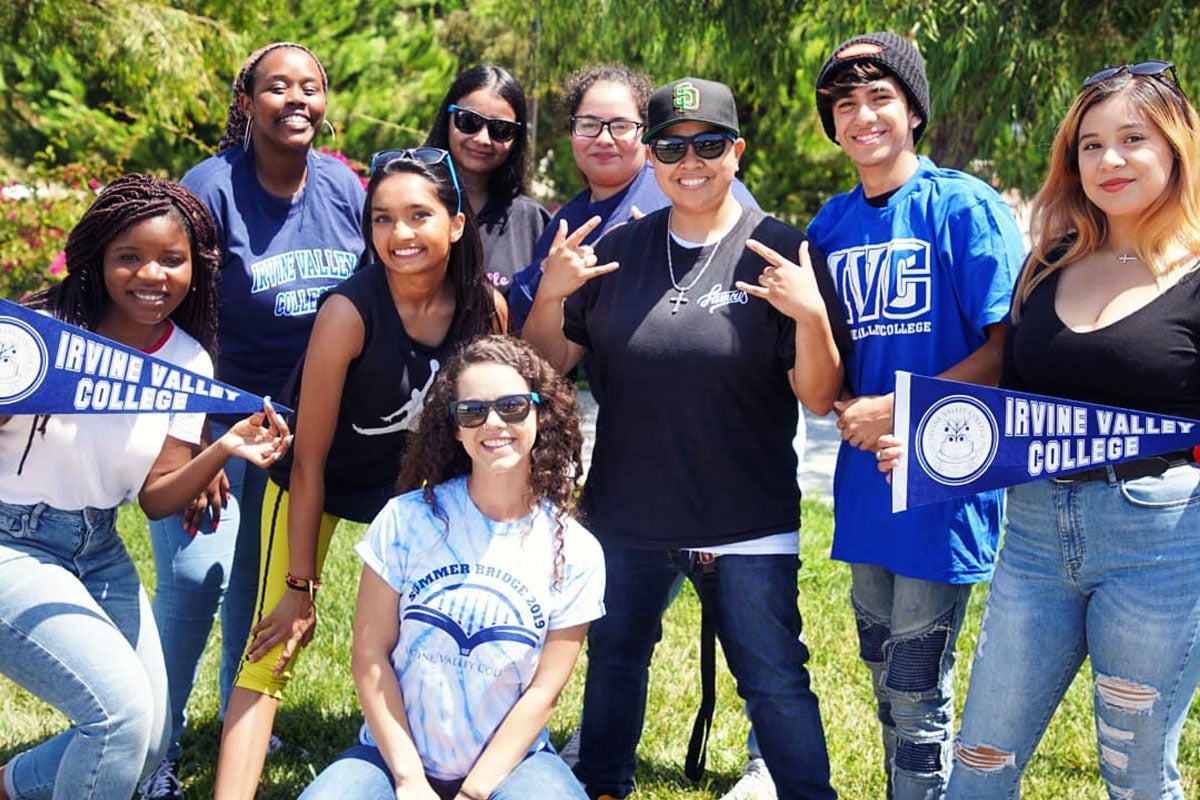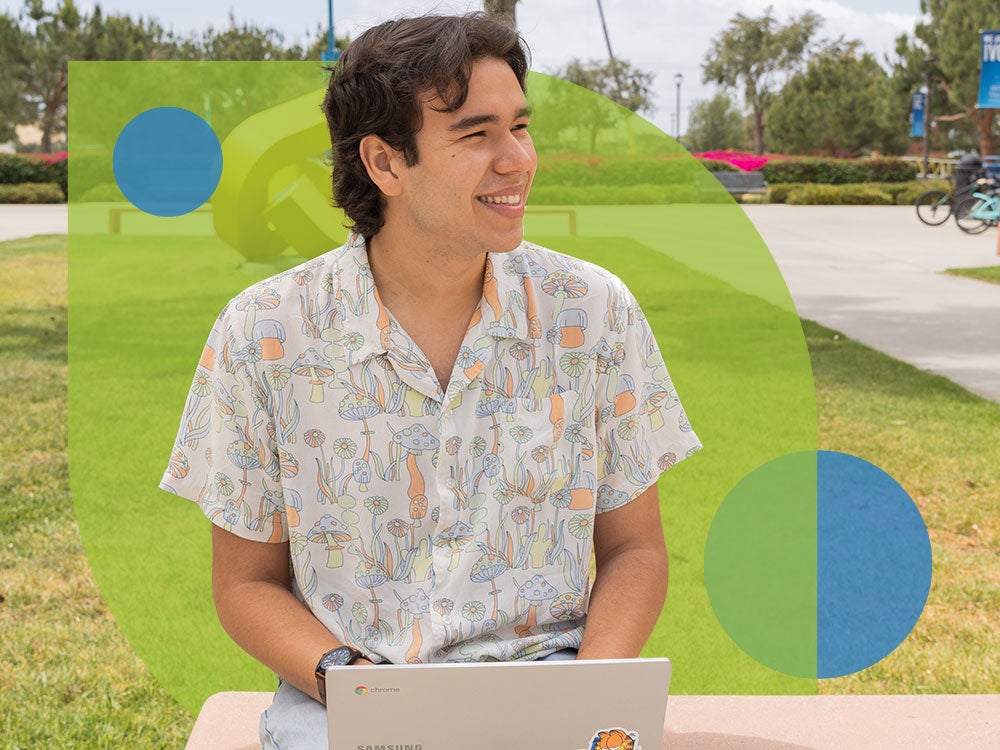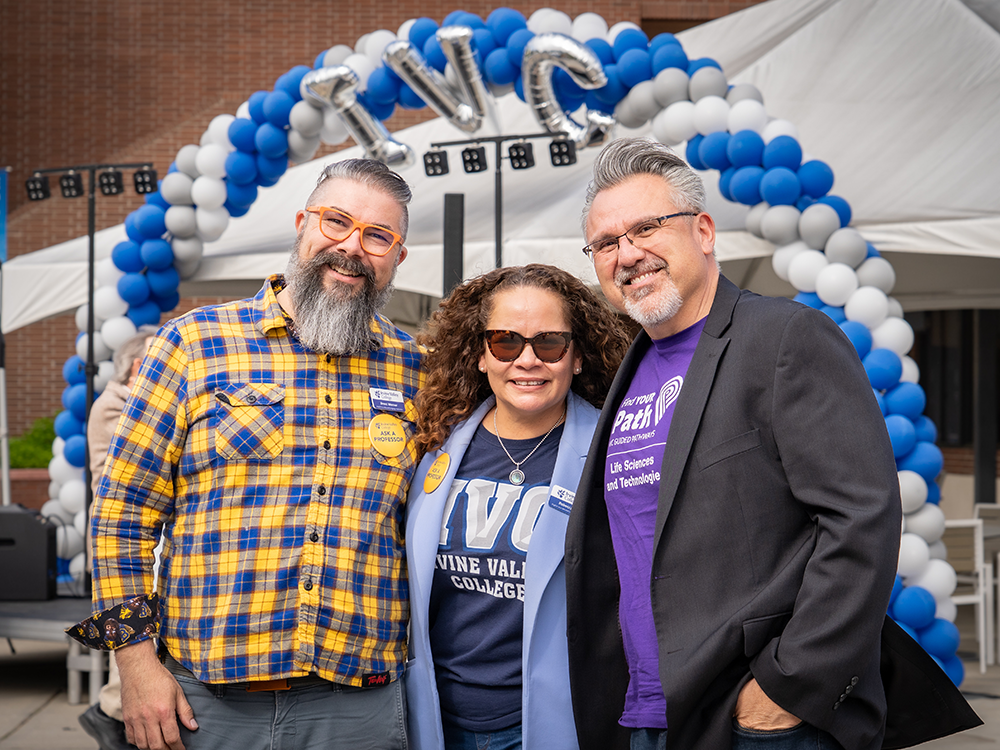Understanding Assembly Bill (AB) 1111
What is AB 1111?
AB 1111 requires all California community colleges to implement a uniform course numbering system. This means that courses with identical and similar content will share the same course number and title across the 115 community colleges in the state. The purpose is to streamline course selection, making it easier for students to recognize equivalent courses at different colleges and complete their academic goals successfully.
For example, below is an Introduction to Psychology course that is being offered at Irvine Valley College and two other community colleges. With implementation of the CCN, the three colleges will have the same course prefix and course number.
College | Course Prefix and Number | Common Course Numbering (CCN) |
Irvine Valley College | PSYC 1 | PSYC C1000 |
Fullerton College | PSY 101 F | PSYC C1000 |
Santiago Canyon | PSYC 100 | PSYC C1000 |
How will this benefit you?
- Simplified Course Matching: It will be easier to recognize courses that are equivalent when attending different California community colleges.
- Clearer Pathways: Choosing the right courses for your degree or certificate program will become more straightforward.
- Better Consistency: A uniform numbering system reduces confusion caused by varying course numbering across colleges.
When will this happen?
Initially, the bill required implementation by July 1, 2024. However, a subsequent bill, AB 3290, extended the deadline to July 1, 2027.
The implementation will occur in three phases:
- Phase I: Implementation date of Fall 2025.
- Phase II: Implementation date of Fall 2026.
- Phase III: Implementation date of Fall 2027.
What does this mean for you?
- Course numbers at Irvine Valley College (IVC) and other community colleges will be updated to match the new system.
- The updates primarily involved changes to course prefixes, numbers, and titles, while the content and quality of the courses remained the same.
- Some associate degree and certificate listings in the catalog may still reflect outdated course numbering. We are currently in the process of updating them to align with the new system.
What are the courses?
The courses are general education courses that are listed on the California General Education Transfer Curriculum (Cal-GETC) pattern which meet the California State University (CSU) and University of California (UC) general education requirements.
Note: These courses also fulfill CSU GE and IGETC requirements for students following those patterns and maintaining catalog rights.
Phase I Courses: Implementation Fall 2025
IVC Course | Course Title | IVC CCN Course | CCN Course Title | Cal-GETC Area |
COMM 1 and 1H | Communication Fundamental/ Honors | COMM C1000/H | Introduction to Public Speaking/Honors | Area 1C: Oral Communication |
MATH 10 | Introduction to Statistics | STAT C1000 | Introduction to Statistics | Area 2: Mathematical Concepts |
PS 1 and 1H | American Government/ Honors | POLS C1000/H | American Government/ Honors | Area 4: Social and Behavioral Sciences |
PSYC 1 and 1H | Introduction to Psychology/ Honors | PSYC C1000/H | Introduction to Psychology/Honors | Area 4: Social and Behavioral Sciences |
WR 1and 1H | College Writing/Honors | ENGL C1000/H | Academic Reading and Writing/Honors | Area 1A: English Composition |
WR 2 and 2H | College Writing 2: Critical Thinking, Writing/Honors | ENGL C1001/H | Critical Thinking and Writing/Honors | Area 1B: Critical Thinking Composition |
Phase IIA Courses: Implementation Fall 2026
IVC Course | Course Title | IVC CCN Course | CCN Course Title | Cal-GETC Area |
ARTH 25
| Art History Survey I: Western | ARTH C1100 | Survey of Art from Prehistory to the Medieval Era | Area 3A: Arts |
ARTH 26
| Art History Survey II: Western | ARTH C1200 | Survey of Art from the Renaissance to Contemporary | Area 3A: Arts |
COMM 5* | Interpersonal communication | COMM C1004 | Interpersonal Communication | Not applicable |
ECON 1 and 1H | Principles of Economics: Micro / Honors | ECON C2001/H | Principles of Microeconomics/ Honors | Area 4: Social and Behavioral Sciences |
ECON 2 and 2H | Principles of Economics: Macro / Honors | ECON C2002/H | Principles of Macroeconomics/ Honors | Area 4: Social and Behavioral Sciences |
ENGL 1003 and 1003H | New course at IVC | ENGL C1003/H | Critical Thinking and Writing through Literature / Honors | Pending: |
HIST 20 | American History through the Civil War | HIST C1001 | United States History to 1877 | Area 3B: Humanities OR |
HIST 21 | American History since the Civil War | HIST C1001 | United Sates History since 1865 | Area 3B: Humanities OR |
LIT 1 and 1H | Introduction to Literature/ Honors | ENGL C1002/H | Introduction to Literature / Honors | Area 3B: Humanities |
MATH 3A and 3AH * | Analytic Geometry and Calculus I/ Honor | MATH C2210/H | Calculus I: Early Transcendentals / Honors | Area 2: Mathematical Concepts |
MATH 3B and 3BH * | Analytic Geometry and Calculus II/ Honors | MATH C2200/H | Calculus II: Early Transcendentals / Honors | Area 2: Mathematical Concepts |
Courses marked with an asterisk (*) are Phase IIB courses, but they will be implemented in Fall 2026 instead of Fall 2027.
Phase IIB Courses: Implementation Fall 2027
IVC Course | Course Title | IVC CCN Course | CCN Course Title | Cal-GETC Area |
ANTH 1 and 1H
| Introduction to Anthropology /Honors | ANTH C1001/H | Introduction to Biological Anthropology/ Honors | Area 5B: Biological Science |
ANTH 1L
| Physical Anthropology Lab | ANTH C1001 L | Biological Anthropology La | Area 5C: Laboratory |
ASTR 20 and ASTR 20H | General Astronomy | ASTR C1001/H | Introduction to Astronomy / Honors | Area 5A: Physical Science |
ASTR 25 | Observational Astronomy | ASTR C1001L | Introduction to Astronomy with Lab | Area 5C: Laboratory |
BIO 1 and 1H | The Life Sciences / Honors | BIOL C1001 /H | Introduction to Biology / Honors | Area 5B: Biological Science |
BIO 1L | The Life Sciences Lab | BIOL C1001L | Introduction to Biology Lab | Area 5C: Laboratory |
HD 7* | Developmental Psychology: Childhood and Adolescence | CDEV C1000 | Child Growth and Development | Area 4: Social and Behavioral Sciences |
SOC 1 and 1H | Introduction to Sociology/ Honors | SOCI C1000 /H | Introduction to Sociology / Honors | Area 4: Social and Behavioral Sciences |
*HD 7 was cross-listed with PSYC 7 and the cross-listing is removed to align with the Common Course Numbering.
How does this affect your plans to transfer to California State University (CSU) or the University of California (UC)?
The courses in all phases are primarily aligned with the CSU and UC general education pattern, known as Cal-GETC. This allows transfer students to use these courses to meet general education requirements once they are approved or re-approved. Efforts are also underway with CSU and UC partnersto ensure these courses are accepted for specific major requirements where applicable. To review approved courses for general education and major requirements, visit www.assist.org.
What should you do?
• Stay informed by checking your college email and official announcements regularly.
• Continue focusing on your current coursework and educational goals.
• Reach out to your academic counselor if you have questions about how this may impact your education plan. The Counseling Center is located in the Student Services Building, Room 210. For assistance, call (949) 451-5319.
Questions?
Contact Tiffany Tran, Articulation Officer/Counseling Faculty, via email or call 949-451-5324.






